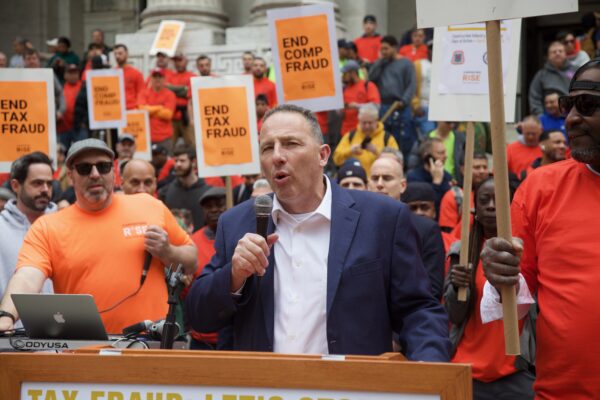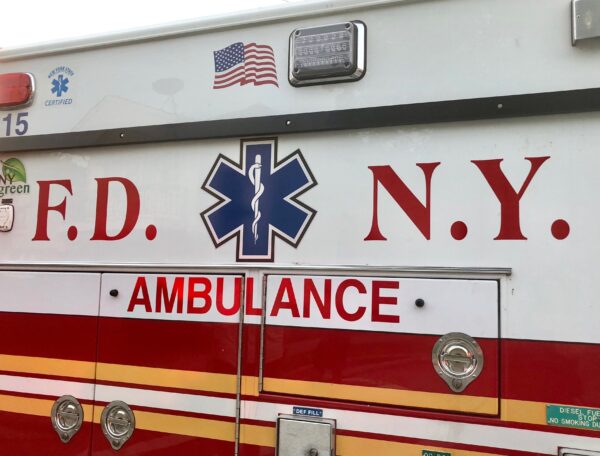Fifty years ago I joined Laborers’ Local 773 in Cairo, Illinois. My first dispatch out of the union hall put me in a pick-up truck headed to a job building a bridge that links Missouri with Illinois. Bob Tapley was an Operating Engineer working on the job, and he charged me two dollars a day for the ride back and forth to work. Although that was a lot of money back then, I was glad to get the ride, because at 14, I didn’t have a driver’s license.
in a pick-up truck headed to a job building a bridge that links Missouri with Illinois. Bob Tapley was an Operating Engineer working on the job, and he charged me two dollars a day for the ride back and forth to work. Although that was a lot of money back then, I was glad to get the ride, because at 14, I didn’t have a driver’s license.
I was swamping on a drag line at the construction site all day. It was a hot and dirty job, and at the end of the day, I was too tired to get in any trouble that night. My Dad was the Business Manager of the Local, and that’s just how he planned it. One thing I will always remember is the teamwork of the crafts working on the bridge. Everyone knew their job, and everyone did their job, and everyone watched out for everyone else, because construction work is dangerous work.
1968 was a very different time for the labor movement, and for the country. Yet many of the issues the labor movement faces today are the exact same ones we faced 50 years ago: fair wages, safe working conditions, health care coverage for members and their families, a voice on the job, and a pension one can retire on with dignity after a lifetime of work.
Building trades unions today offer high-tech apprenticeship programs, are more diverse than ever before, provide wages to raise a family on, and offer health care and pensions. They have full-time labor-management marketing programs, fair contracting programs, strategic organizing programs, their own labor-management trustee health and welfare funds and pension plans. All of which are a far cry from what the trades had 50 years ago.
But some problems are still the same. For the construction trades, you only work when there’s work available. Construction work is still dangerous work, despite all the safety rules now in place. Labor management relations are different today, but can still be contentious. Project management, improved building materials, and mechanization have changed construction projects over the years, resulting in the employment of fewer workers on job sites.
Political involvement for members has also changed over the years. Members used to get the majority of their information on candidates and their positions through the monthly meeting at the union hall. Today, members get their information from a variety of news and social media outlets, making messaging to members regarding candidates increasingly more complex.
Legislative battles have always been fought on union issues, but recent election cycles brought about the most intensive continuing effort in the last fifty years in an attempt to destroy gains made at the state level for union workers. These efforts funded by corporate billionaires are rolling back wages and benefits for workers across the country, and serve as a chilling reminder that elections have consequences.
The battles are not limited to the state legislatures or Congress, as the courts continue to play a major role in affecting union members. The Supreme Court in deciding the Citizens United case, opened the floodgates on corporate money in the election process, and the recently decided Janus case, will have far-reaching effects on union membership and finances.
While the fortunes of organized labor have risen and fallen over the years, and while our obituary has been written more times than I can count, I have learned we are never out of any fight. Witness the teacher strikes across the country in red states, where workers came together in a common cause to stand up and be counted. And in Missouri, where voters rejected so-called “right-to-work’ by a two-to-one margin. We all know there is nothing more powerful than when workers speak as one.
This Labor Day, I think about what America would look like if all workers had wages like union members have. I think about what if all workers had safe working conditions like union members have, and if all workers had health insurance for their families and pensions for their retirement, like union members have. That’s the American Dream. At Ullico, for over 90 years we have joined with the Labor Movement to continue the fight. Don’t count us out – count us in for every step of the way as we continue to fight for dignity and justice for every working man and woman. A happy Labor Day 2018 to all.
Edward M. Smith is a member and former Vice President of the Laborers’ International Union of North America. He is currently President and CEO of Ullico Inc., a labor-owned insurance and investment firm focused on earning competitive returns for union benefit funds and on creating union jobs.



